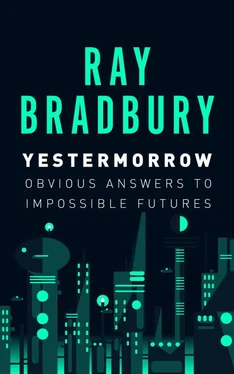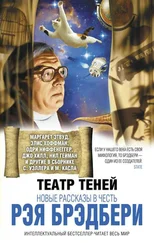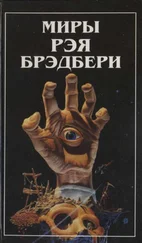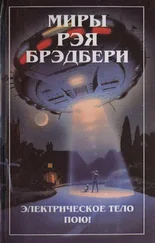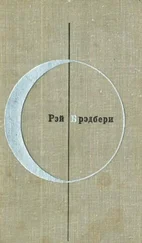“Well now,” said Berenson, advancing slowly upon me, “you didn’t answer my first letter to you for many months. Why? Was it because you had never heard of this man Berenson, and only found out later, and then hurried to write?”
“Mr. Berenson,” I cried. “Your letter scared the hell out of me! I wasn’t prepared for it. I didn’t think I could find the words to respond intelligently, on top of which I had no money, no way to travel, no chance of ever seeing you. It was hopeless. But now, suddenly, here we are! What else can I say?”
“Nothing.” Berenson moved forward more swiftly now, smiling. “Accepted. We shall be friends.”
I think we laughed then, all of us; the room became warmer, we sat down to a splendid lunch and fine wine.
My apprehensions fled. The bantamweight never attacked, never measured me for an intellectual box, never called me the names the bright Manhattan people had once called me. B.B. was simply curious to find out how a hothouse Martian happened to grow that way. I explained as best I could how I had dieted on Popular Mechanics , Science and Invention , with equal parts of Wonder Stories, when I was eight, nine, and ten.
“Well, now we shall diet you on da Vinci,” said B.B., “some of whose sketches could easily inhabit one of your technical fancies. How much do you know of the Renaissance?”
I had learned honestly from my encounter with Huston and the Whale.
Very little, I admitted.
“Splendid!” cried Berenson. “I shall be your guide and teacher!”
As indeed he was. He ran us forth to encounters with churches and galleries and pictures, then called us back for lunch or dinner to watch our faces and listen to our babble. He seemed truly delighted with our naïveté and the prospect of filling up these two young and impossibly empty new friends of his.
I don’t believe his delight would have lasted, however, if we hadn’t proved out as intuitive students.
Our friendship with B.B. was cemented by sheerest accident.
One morning I hailed a horsecab and gave instructions, in my truly abominable Italian, to take us to the Piazza Michelangelo. We wound up, instead, before the Church of the Carmine. Hell, I thought, since we’re here anyway, let’s go in.
In an innocence that would shame a gang of saints, my wife and I wandered the church aisles, stared at the murals, gasped, turned, and hurried back to lunch with B.B.
“Well children,” he said, pouring the wine, “what have we seen today?”
“Someone new to us. Someone we’d never heard of before,” I said.
“And who was this?”
“A painter named Masaccio,” I said, mispronouncing the name three different ways.
“Ah.” B.B.’s eyes twinkled. “And—mm—what did you think of this—Masaccio?”
“His murals looked—” I searched for the proper words “—as fresh as tomorrow morning. That open, that beautiful. Whatever year he painted in, it must have been a turning point. Was it?”
“Was it, indeed!” Berenson laughed and lifted his glass. “To Masaccio, and his new discoverers!”
“But now,” he said, at lunch. “Let me discover some of you. I’ve read your Fahrenheit 451 , which you brought along to give me, and I’m fascinated with your Book People in your finale. The idea of having people become books, memorize them, so as to save them from the Burners—superb. But, I’ve been thinking—”
I drank my wine a trifle too fast. “Yes?”
“You could do a sequel to your novel, in which the Book People, at a later date and time, when the Burners vanish and the world is safe from fire—when the Book People are called in to recite their memorized books and remember them all wrong.”
“My God,” I said. “I never thought of that.”
“Think of it!” cried Berenson, eyes flashing. “War and Peace told by an idiot. Crime and Punishment remembered by a fool. Machiavelli’s The Prince mouthed by a numskull. Moby Dick recited by an alcoholic cripple. Oh, the variations are many! You could do a chapter on each book and how it was boned, marrowed, broken, collapsed in ruins and put back together by morons or well-meaning pedants who remember their own interpretation of the soaring lines. Hamlet run to earth by a harebrain. Othello bleached into boredom by a retired librarian, long gone in senility. What fun, what variations, what satire. Write it down!”
I did. It was a superb idea. But it has lain in my files for some 25 years now. I didn’t dare say to Berenson, or perhaps even to myself, then, that it would take a genius who had read, digested, and completely understood the entire body of American and English literature to plow into and create a book like that. Envy the idea? God, yes. But do it? The ghosts of Moliere, Pope, Swift, and Chesterton, plus Shaw, just might bring it off.
Meanwhile, our gentle disagreements continued. I wanted to hold onto my Martians with a tight fist. B.B. oiled his wit with Burgundy and pried my fingers, one by one. “Surely,” he pursued, “you have some stories, some novels in progress about, well, just people. I mean, minus machines, minus the ballet scrims and backdrops of your Mars?”
“I’ve been working on a book called Dandelion Wine for ten years,” I said. “About my childhood, my folks, my friends in upper Illinois in 1929.”
“Finish it!” said Berenson. “Let me see it. Now, later this afternoon—have you been to the Duomo yet? No? Out you go.”
And out we went and the days passed and it was time to leave for Venice. Not a sad leaving, we discovered, for B.B. was heading for Venice the same week. Whether he came along to be with us, or whether he had planned the trip for himself months before, we never knew, and were too timid to ask. The great thing was—B.B. would be there, wandering the canals and streets, to welcome us!
B.B. wasn’t there.
Well, he was there, said the voice on the hotel phone, but he was gone. Gone where? Out. Out like a small child, unable to wait for one more encounter with Raphael, one more collision with Tintoretto!
No one, not even Nicky, knew where he was. He would come wandering back soon, of course, and then we would lunch.
We went out, hoping to find B.B., but found, instead, to his later delight, the special Veroneses he loved, plus the Bellinis, plus, plus, the list was endless, as was the after-lunch, high-tea, before-dinner, early bedtime talk, for our time was running out. We’d been away from America for eight months. Our families were waiting a long way off; it was time to go home.
Meanwhile I had fallen in love with the theatrics of Tintoretto. I used the term in ignorance and found that it was absolutely center-target, on-the-nose. Berenson showed me some sketches of miniature theaters Tintoretto had built and lit so as to study and duplicate his experiments in chiaroscuro.
Toward the end of our last drink together, B.B. let his eyes flash and his mouth work over a tidbit that he soon let forth: “You mustn’t mind me when I sometimes quietly insinuate you might grow better without all that machinery to hold you up.”
“Mr. Berenson,” I said. “I—”
“No, no, let me finish.” He waved his small hand and leaned forward. “For I suddenly remember a device whereby the Boy David was created. Ask me now: how was the Boy David hammered out of his rock, eh? Where does the mighty Michelangelo begin to cut such an incredible figure out of marble?”
“How?” I asked.
“Well, now—” B.B. leaned to refill my glass and sketch out the grand details. “Michelangelo built himself an inkwell twenty inches high and filled it to the brim with ink. In that inkwell he suspended an eighteen-inch-tall model miniature of the David. Each day he drained an eighth of an inch of ink from the well. The sides of the well were marked in measures corresponding to inches on the huge slab of marble from which the David would be summoned. Measuring in from the sides of the inkwell to the crown of the miniature of David’s head, Michelangelo then climbed up on the great stone and struck his first blow! Day-by-day, the ink was lowered, day-by-day the marble David emerged from the living rock!”
Читать дальше
